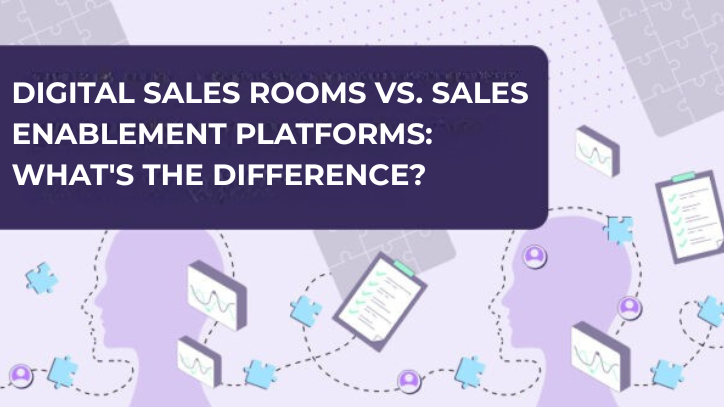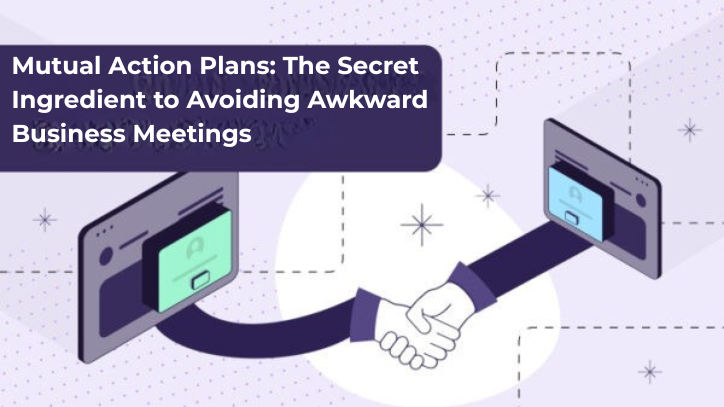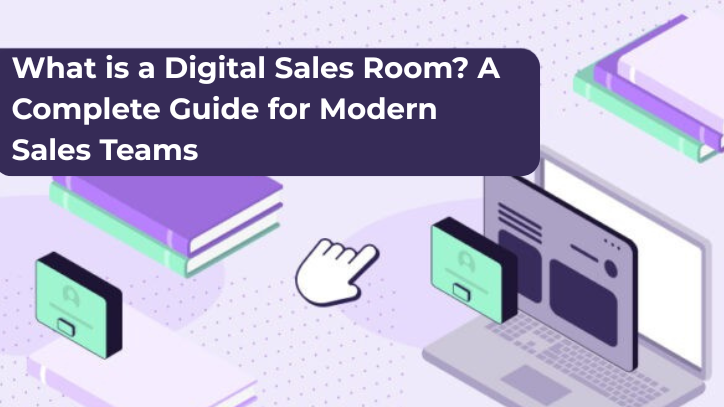Updated on March 2, 2023.
You had a brilliant idea.
You got the funding from investors, set up a team, and after months of bug fixes and UX meetings, developed a killer SaaS product.
Congratulations!
All that’s left for you to do is pull off a successful product launch.
But hold on just a second there, friend! We hate to be the ones to have to say it, but launching a new B2B SaaS product isn’t as easy as you might think.
Many SaaS founders are incredibly smart engineers. However, usually these engineers aren’t also sidelining as marketing gurus.
That’s why setting up a SaaS launch plan and a SaaS product checklist will go a long way in ensuring your product’s market debut is a success.
So, join us as we break down how to do exactly that.
The SAAS product launch checklist: Exploring every stage
There are thousands of SaaS companies out there, and those in the same niche will be competing for the same clients.
Intimidating.
But don’t worry. That’s why we’re here; to give you everything you need to approach this process.
To stand out from the crowd, you need a strategy to guide you at every stage of the SaaS launch:
1. Pre-launch
2. Launch
3. Post-launch
Now, let’s go over what you’ll need to do during each phase of your SaaS product launch.
The SaaS pre-launch phase
Launching a SaaS product is all about the preparation. And this is exactly what you’ll do in this stage of the process.
The SaaS pre-launch or launch planning phase is where you get to grips with your operating environment, customers, and your unique value proposition.
Use this time to do research, make some calls, and create a lead list.
Understand your competitive advantage
First things first.
Before you launch a SaaS product, you need to take the time to understand your competitors. What makes your product different? What makes your solution unique? Which benefits do you want to highlight when speaking to your customers? What pain points does your product solve that other solutions don’t?
These answers will form the basis of your unique customer value proposition, or what makes your product stand out from the competition and convinces prospects to buy it.
This information should be used to tailor all of your communication, including your product demos, website copy, and social media presence.
Set KPIs and goals
You’ve heard the expression, “You can’t manage what you can’t measure.”
However, if you set up key milestones and goals for client acquisition and churn rates, you will be able to gauge whether your company’s growth trajectory is on the right track.
There are several KPIs you can track to determine if your SaaS product launch was successful, including visitor sign-up rate, sign-up-to-PQL (product qualified lead) rate, and PQL-customer rate.
Learn about your target market
Before you start selling, you need to know exactly who you are selling to and what they need from your product.
Spend some time on market research, making calls, and doing surveys. Know which clients you want to target, which competitive solutions they are currently using, and what your product offers that their existing vendor can’t.
This will help you determine which buyer personas or groups of customers will benefit from your product. Just keep in mind that different buyer personas may have different needs, motivations, and goals.
Understanding the buyer personas for your target audience will help you define your messaging and the strategies you’ll use to launch your SaaS product.
If you use an interactive demo software (does the name Walnut ring a bell?), you can even start presenting your SaaS product before it goes live.
All you have to do is to capture its main features to create an interactive demo. Send a link to your demo to your potential clients, and understand what features they use most—or don’t use at all.
This test will allow you to learn more about their needs to make sure your product will be optimized for the launch.
But we’ll talk more about interactive demo software (like Walnut) in a bit.
Create a brand story
Once you know your competitive advantage, you need to communicate it correctly by creating a compelling brand story that appeals to your customer’s needs and emotions.
This brand story can be used in pitches, on your website, or through your brand voice and the images you use.
For example, let’s say you work in HR and got tired of seeing how much needless paperwork gets generated, so you came up with a paperless solution. Or maybe you work for a large enterprise and realized early on that a cloud solution would be much cheaper and more accessible for companies to manage.
It’s a compelling narrative.
Your story builds brand affinity and helps you connect with customers during the sales pitch.
The SaaS launch phase
We have lift-off!
Once you fully understand the operating environment, now you’re ready to launch your product and start signing customers up using the insights and knowledge gained from the pre-launch stage.
During this phase, you’ll see if the brand positioning work you’ve done resonates with your target audience. Plan to make adjustments to your branding and messaging as needed.
Just remember that it’s essential to set milestones and track your progress.
Marketing methods
We can’t talk about product launches without giving marketing a mention.
Your marketing mix will form a big part of your SaaS product launch strategy, including sales, promotions, pricing, advertising, and more.
Here are some best practices when it comes to marketing for a SaaS product launch:
1. Launch your product on Product Hunt.
2. Show your PR muscles because press coverage has a huge impact on public perception.
3. Send a newsletter to your database.
4. Make a splash on social media to amplify the noise.
5. Fine-tune your website to make a good impression on visitors.
6. Make sure to collect all the possible data on the same day / week—launches usually bring a lot of traffic.
Just remember that modern marketing for SaaS doesn’t just talk at prospects, but with them.
Another marketing strategy is to embed interactive product walkthroughs on your website and landing pages. This way, the client has already seen what you could do when viewing the marketing demo embedded on your page.
Plus, you’re able to gather information that can be used by sales teams when they set up their first meeting with the client.
The sales call that follows can use those insights to create a demo highlighting features of interest. They can then seal the deal by answering questions and overcoming objections.
Showcasing your product with a demo
We started talking about it in the previous section, but we can’t understate how valuable product demos are when launching a SaaS product.
In fact, they are so important that we have devoted an entire section of this blog just to this topic.
When you’re the new kid on the block, showcasing product features or talking up your team’s excellent customer service isn’t necessarily going to convince prospects to sign up with you.
So, what will? An interactive and personalized demo.
Interactive and personalized demos differ from other marketing and promotional materials you create during the launch phase because, if done correctly, they can be customer-centric. Putting your customers first from the get-go will set you up for upselling success.
On top of this, customization makes clients feel like you genuinely understand their business and the pain points they face. You’re not making empty promises; you’re demonstrating that you can apply your product in scenarios that are relevant to them.
By creating personalized sales demos, you can help your customers understand not only what you do, but what it is you can do for them.
And when a customer sees how your product can help them solve their problems, they’ll be more likely to convert.
You can also embed a self-guided product experience on the site to grab prospects at the early information-seeking stage of the funnel.
To learn more exactly how to create a killer product demo, download the full checklist.

The SaaS post-launch phase
After the launch, the focus should shift to setting your clients up for success after purchase and analyzing the feedback received (both from customers who have and haven’t converted).
Onboarding new customers
Every SaaS company needs to follow the customer onboarding best practices and have an automated customer onboarding process.
Why? Because very few companies or users will jump in without a thorough understanding of what your product has to offer.
There are several tips and tricks that you can try, but at the very minimum, your customer onboarding process should include:
1. Quick sign-ups
2. Welcoming messages
3. Walkthroughs, tutorials, and product tours
4. An option to request a demo
5. A series of lifecycle emails
Gather feedback
Before you’ve launched your product, make sure that you have a feedback mechanism ready for the post-launch phase.
This will help you flag potential issues like bugs and UX issues that could cause friction with users so you can improve your product and deliver more value to customers.
To collect user feedback, you can send surveys or have regular check-in calls with your current customers.
Using a demo platform to upgrade your SaaS product launch
The SaaS product launch is your time to shine.
It’s the culmination of all your product and marketing development efforts.
That’s why it’s critical to give your team everything they need to ensure your product launch is successful.
If you take advantage of interactive demo software (like Walnut), you can easily create interactive product demos, walkthroughs, and tutorials—even if the product isn’t live yet.
Plus, some solutions (Walnut) allow you to collect insights and analytics on your customers’ usage in order to further optimize the user experience.
Think of it this way. By using interactive demo software to help you launch your SaaS product, you’ll be giving your team the tools they need to get the word out about your solution and make a lasting impression on customers.
FAQs
How do you launch a SaaS product?
When it comes to launching a SaaS product, you can break the process down into three main phases: the pre-launch phase, the launch phase, and the post-launch phase.
How can you measure the success of your SaaS product launch?
There are several KPIs you can track to determine if all of the hard work you put into your SaaS product launch is paying off.
We recommend tracking:
1. Visitor sign-up rate—The percentage of website visitors that eventually became leads
2. Sign-up-to-PQL (product qualified lead) rate—The percentage of leads that fully understand the unique value proposition of your product
3. PQL-customer rate—The percentage of PQLs that became paying customers
How long does it take to launch a SaaS product?
There’s no right answer when it comes to how long it should take to launch a SaaS product. In some cases, it can take several months to go through all of the stages of launching a SaaS product.
Wanna get started with Walnut? You’ll never believe this, but you can do that by clicking the “Get Started” button at the top of your screen.





